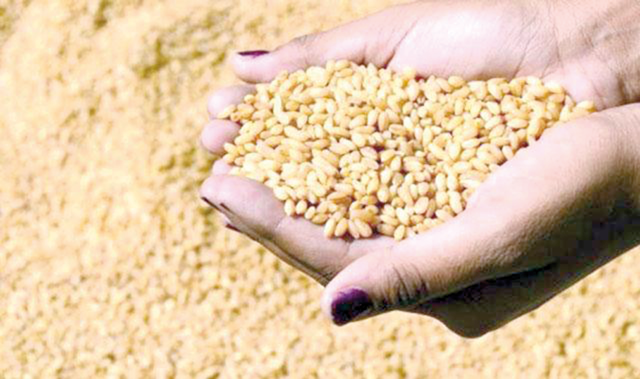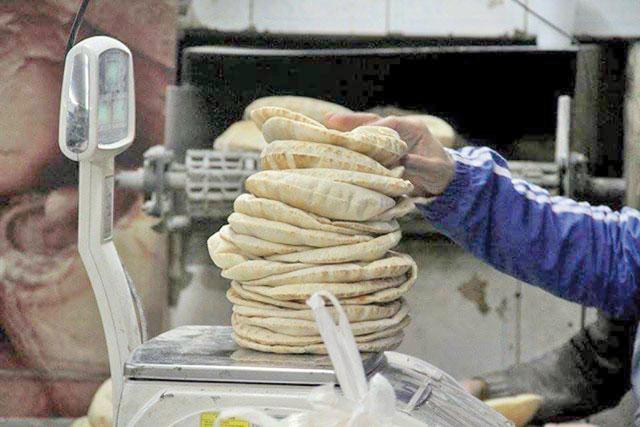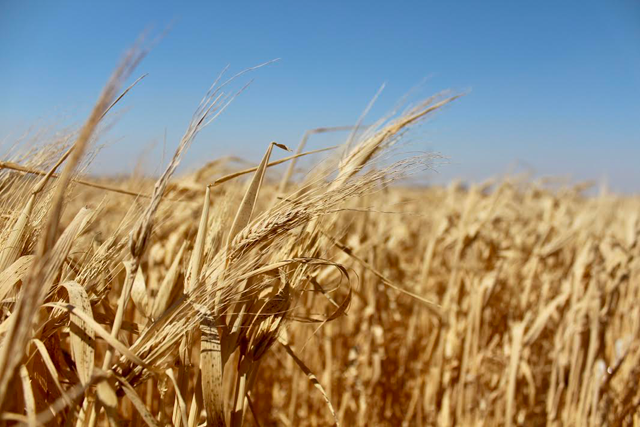You are here
Russia-Ukraine tensions to push grain prices up – economist
By Mays Ibrahim Mustafa - Nov 16,2022 - Last updated at Nov 16,2022

Representative image ((Photo courtesy of Agriculture Ministry Facebook page)
AMMAN — Russia’s decision to pull out of the Black Sea grain agreement combined with the global energy crisis will lead to a hike in grain prices, according to Jordanian economist Hosam Ayesh.
Wheat prices, which hit record highs after Russia’s invasion in February, returned to pre-war levels after Ukraine and Russia reached a deal to resume grain shipments from ports on the Black Sea on July 22, he told The Jordan Times on Tuesday.
However, Russia indefinitely suspended its participation in the UN-brokered deal on October 29.
Ayesh noted that this abrupt cessation will lead to a notable increase in the prices of all grains, including wheat, in 2023.
Russia is the world’s largest exporter of wheat, and Ukraine is the fifth largest, according to the Food and Agriculture Organisation (FAO).
The energy crisis is also directly impacting global wheat prices, as some of the world’s top wheat-producing countries are using grain for biofuels, Ayesh said.
Low-income countries dealing with inflation or conflict will be impacted the most by the repercussions of this increase, he added.
“It will burden their general budgets and affect their ability to buy sufficient amounts of wheat, posing threats to their food security and political stability,” Ayesh continued.
Non-profit organisations such as Oxfam and the European Federation for Transport and Environment (T&E) have campaigned against the use of food crops for biofuels, he said, noting that reducing the use of wheat in the EU’s biofuels would compensate for a large percentage of wheat exports from Ukraine, and support the food security of many countries.
“Europe continues to turn 10,000 tonnes of wheat — the equivalent of 15 million 750g loaves of bread— into ethanol for use in cars,” according to a report by T&E.
Ayesh said that Arab countries, which import 23 to 25 per cent of the wheat produced globally, are extremely vulnerable “to any conflict or disasters that might affect prices or supply chains”.
According to the Ministry of Industry, Trade and Supply, Jordan’s wheat reserve, which amounts to around 1.3 million tonnes, is sufficient for 14 months, while its barley reserve, which is around 900,000 tonnes, can cover its needs for 11 months.
Ministry’s spokesperson Yanal Barmawi noted that the war on Ukraine doesn’t pose a threat to Jordan’s wheat reserves, which are currently mostly imported from Romania.
The ministry continuously announces tenders to buy more wheat and barley from various sources in order to “increase Jordan’s strategic food reserves and insure that they’re within or above safe levels”, he told The Jordan Times.
At the beginning of this month, the ministry announced on its website two separate tenders to buy 240,000 tonnes of wheat and 240,000 tonnes of barley.
However, Barmawi agreed that the crisis “naturally” affects grain prices worldwide.
Before the war on Ukraine, the price of one tonne of wheat was between $320 and $350. Following the outbreak of the war, the price of one tonne of wheat increased to roughly $500, while the estimated cost of the ministry’s latest wheat-purchase in the past two months came in at around $385.5 per tonne, according to Barmawi.
The Kingdom consumes 90,000 tonnes of wheat and 80,000 tonnes of barley per month, Barmawi said, noting that Jordan imports roughly 95 per cent of its needs of these strategic grains, as their “domestic production levels are very modest”.
Bakery Owners Association President Abdul Ilah Hamawi said that the demand for baked goods, including bread, has remained “within normal levels” despite the cold weather affecting the Kingdom.
He partly attributed this stability to the availability of 2,000 bakeries distributed in various areas around the Kingdom.
The purchasing power of citizens also declined following the outbreak of the COVID-19 pandemic, and most sectors are still recovering from its repercussions, he told The Jordan Times.
“The pandemic also somehow positively impacted the consumer culture and spending habits of Jordanians, as they no longer buy in amounts exceeding their needs and the scene of overcrowding in bakeries on rainy days is now rare,” he added.
Before the pandemic, bread demand during cold and rainy weather typically increased by more than 50 per cent, according to Hamawi.
He also stressed that bakeries around the Kingdom are working “efficiently” with a sufficient reserve of flour, provided by 14 mills.
In October, the Cabinet decided to stabilise the bread prices until the end of 2023, the Jordan News Agency, Petra, reported.
Barmawi also pointed out that the ministry reduced the price of wheat by JD32.85 per tonne in the beginning of this year in order to “maintain bread production costs, especially amid the global increase in fuel prices”.
Related Articles
AMMAN — The Kingdom’s wheat storage is sufficient for 14 months, the government said on Wednesday, amid concerns of supply cut-offs as a res
AMMAN — Economists on Wednesday said that Jordan will not be affected by Russia’s suspension of its participation in the grain agreeme
AMMAN — The tense situation between Russia and Ukraine, “even in the event of a war between the countries, will not affect Jordan's fo


















